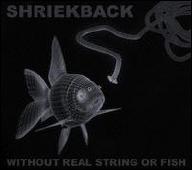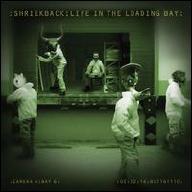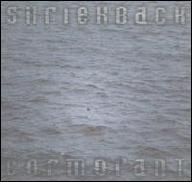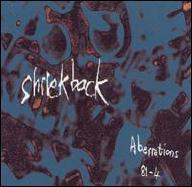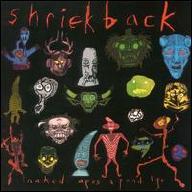Shriekback came together in 1981 as a loose association based around the trio of Dave Allen (bass), Barry Andrews (keyboards/vocals), and Carl Marsh (vocals/guitar). Allen and Andrews had previously been members of Gang of Four and XTC, respectively; Marsh had played with the more obscure Out on Blue Six. They quickly developed a trademark sound that had little to do with the members' previous credits. The bedrock of that sound was Allen's muscular yet liquid bass playing, which was a quantum leap beyond his relatively crude work with Gang of Four. On top of this Shriekback deployed creative and intricate drum programs; Andrews' multifaceted synthesizer shadings; strategically placed, mostly rhythm guitar from Marsh; and whispered vocals from Andrews along with Marsh's more melodic singing. Both vocalists were technically limited, but this was more than compensated for by the band's tight playing and evocative, intelligent lyrics.
The first Shriekback release was the six-song EP Tench, which appeared on the English Y label in 1982. It was followed in 1983 by the LP Care, also on Y, which featured the quasi-hit Lined Up, the song that put Shriekback on the map for many people. Care was picked up and released in the U.S. by Warner Brothers, with an altered running order and two different tracks, including the polyrhythmic My Spine (Is the Bass Line).
Although Care was critically acclaimed and garnered a fair amount of airplay from both college radio and fledgling modern rock radio, that was not enough for Warner Brothers, who dropped Shriekback and deleted Care shortly after its release. As a result, the follow-up, 1984's Jam Science, was released only in Europe (this time on Arista). Slicker, less murky, and more focused on electronics than its predecessor, Jam Science contained the dub-influenced single Hand on My Heart.
Much of Shriekback's music from this early period is most readily available on two mistitled, poorly packaged, but indispensable CDs from Kaz Records. The Best of Shriekback: The Infinite is made up of seven songs from Care, three from Tench, and the single Working on the Ground. The Best of Shriekback Volume Two: Evolution offers one more song from Care and five from Jam Science, along with a nice assortment of remixes and B-sides.
Toward the end of the Jam Science sessions, Shriekback became a quartet with the addition of drummer Martyn Barker; however, they quickly became a trio again when Carl Marsh departed midway through the recording of their third album. Andrews took over as sole vocalist and the addition of Lu Edmonds on guitar brought a more aggressive sound to Oil and Gold, which was released in 1985. Songs like Malaria and Nemesis rocked harder than anything Shriekback had recorded before, bringing them a far wider audience than they had previously enjoyed. Oil and Gold sold well in its U.S. release on Island Records.
Shriekback released two more albums on Island in the '80s. 1986's Big Night Music featured a core trio of Allen, Andrews, and Barker augmented by hired hands like Mike Cozzi (guitar), Steve Halliwell (keyboards), and Wendy and Sarah Partridge (backing vocals). Continuing Oil and Gold's move toward accessibility, Big Night Music had a more organic sound with an emphasis on live percussion. Shriekback seemed poised on the brink of unlikely stardom, but Allen departed before the recording of Go Bang! (1988), which was poorly received by both critics and fans. Perhaps they were put off by the absence of Allen's signature low end, or maybe it was the inconsistent material, including an ill-advised cover of KC and the Sunshine Band's Get Down Tonight.
That appeared to be the end of Shriekback, who dropped out of sight in the late '80s and early '90s. Their only release during that period was the 1990 compilation The Dancing Years. But Allen, Andrews, and Barker reunited in 1992 to record the excellent Sacred City, which essentially picked up where Big Night Music left off. There was another long silence after that, but in 2000 the band returned; Andrews, Barker, Edmonds, and two new members released Naked Apes and Pond Life on the Australian Mushroom label. That kicked off a very busy decade, with studio LPs including Having a Moment, Cormorant, and Glory Bumps (the latter two basically Andrews solo projects), as well as several compilation releases. The self-released Life in the Loading Bay followed in 2010, and Without Real String or Fish in 2015. ~ Bill Cassel, Rovi



